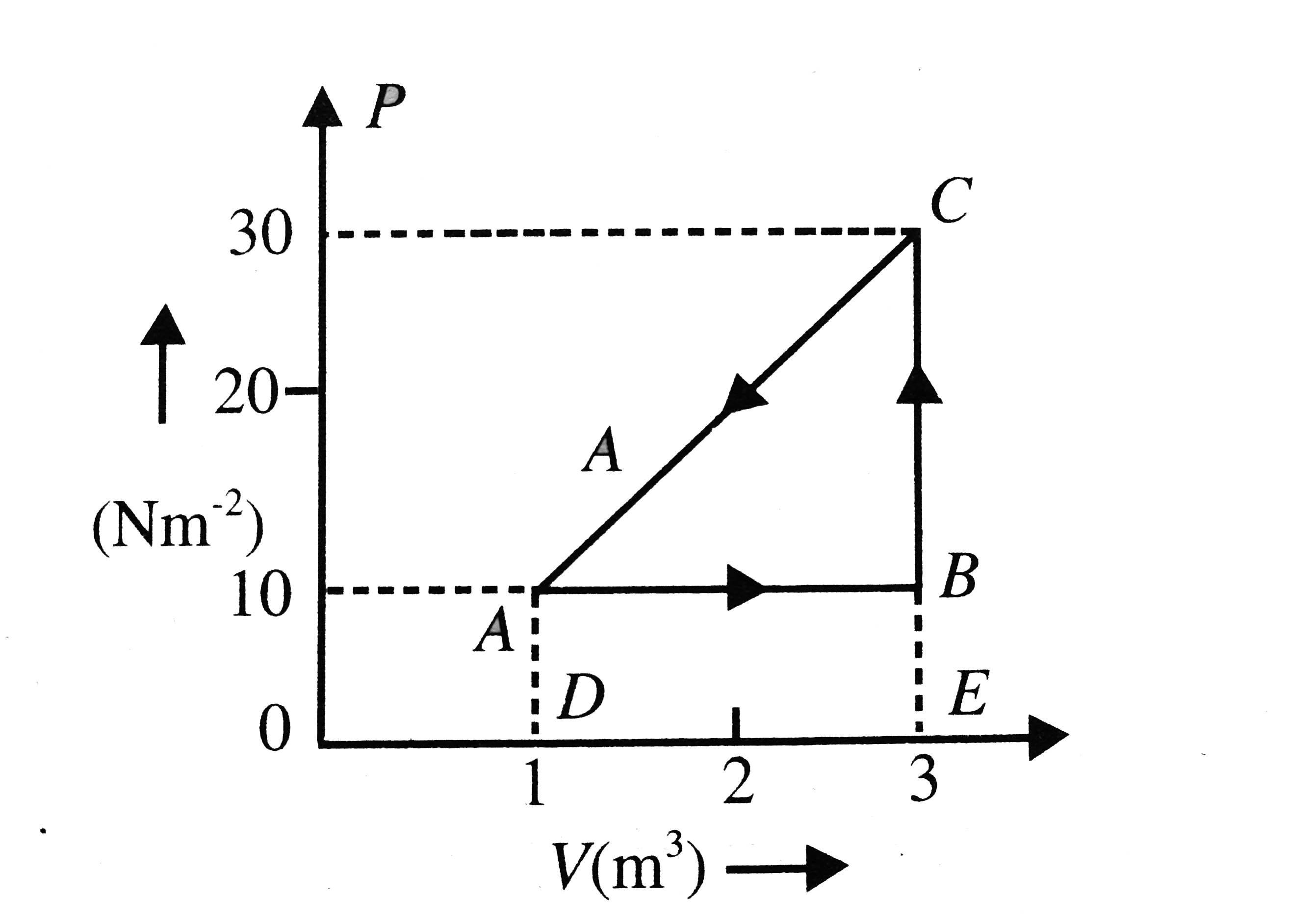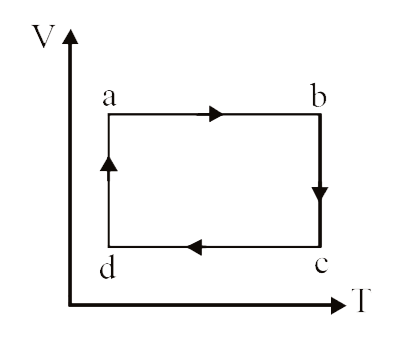In a cyclic process, the internal energy of the gas
increases
decreases
remains constant,
become zero.
The correct Answer is:C
Similar Questions
An ideal gas is taken round a cyclic thermodynamic process ABCA as shown if Fig. If the internal energy of the gas at point A is assumed zero while at B it is 50 J. The heat absorbed by the gas in the process BC is 90 J.
(a) What is the internal energy og the gas at point C ?
(b) How much heat energy is absorbed by the gas in the process AB?
(c ) Find the heat energy rejected or absorbed by the gas in the process CA.
(d) What is the net work done by the gas in the complete cycle ABCA ?

View SolutionA : During a cyclic process work done by the system is zero.
R : Heat supplied to a system in the cyclic process converts into internal energy of the system.
View Solution
Knowledge Check
Assertion : In an adiabatic process, change in internal energy of a gas is equal to work done on/by the gas in the process.
Reason : This is because temp.of gas remains constant in an adiabatic process.AIf both assetion and reason are true and reaasons is the correct expanation of assetionBIf both assetion and reason are tur but reason is not the correct explanation of assetionCIf assertion is true but reason is falseDIf both assertion and reason are false.In a cyclic process the change in the internal energy of system is
Amaximum but not zeroBmaximum but not infiniteCzeroDinfinite specific heatGas is taken through a cyclic process completely once. Change in the internal energy of the gas is
AinfinityBzeroCsmallDlarge
V-T graph of a process of monoatomic ideal gas is shown in figure.

Change in internal energy of the gas is zero in process(s)-
View SolutionHeat taken from a gas in a process is 80 J and increase in internal energy of the gas is 20J. Find work done by the gas in the given process.
View SolutionA : During a cyclic process work done by the system is zero.
R : Heat supplied to a system in the cyclic process converts into internal energy of the system.
View SolutionIn an isothermal reversible cyclic process, the total change in internal energy
View SolutionStatement-1: There is no exchange in internal energy in a cyclic process.
Statement-2: In a cyclic process, the system returns to original state in a number of steps.
View Solution
